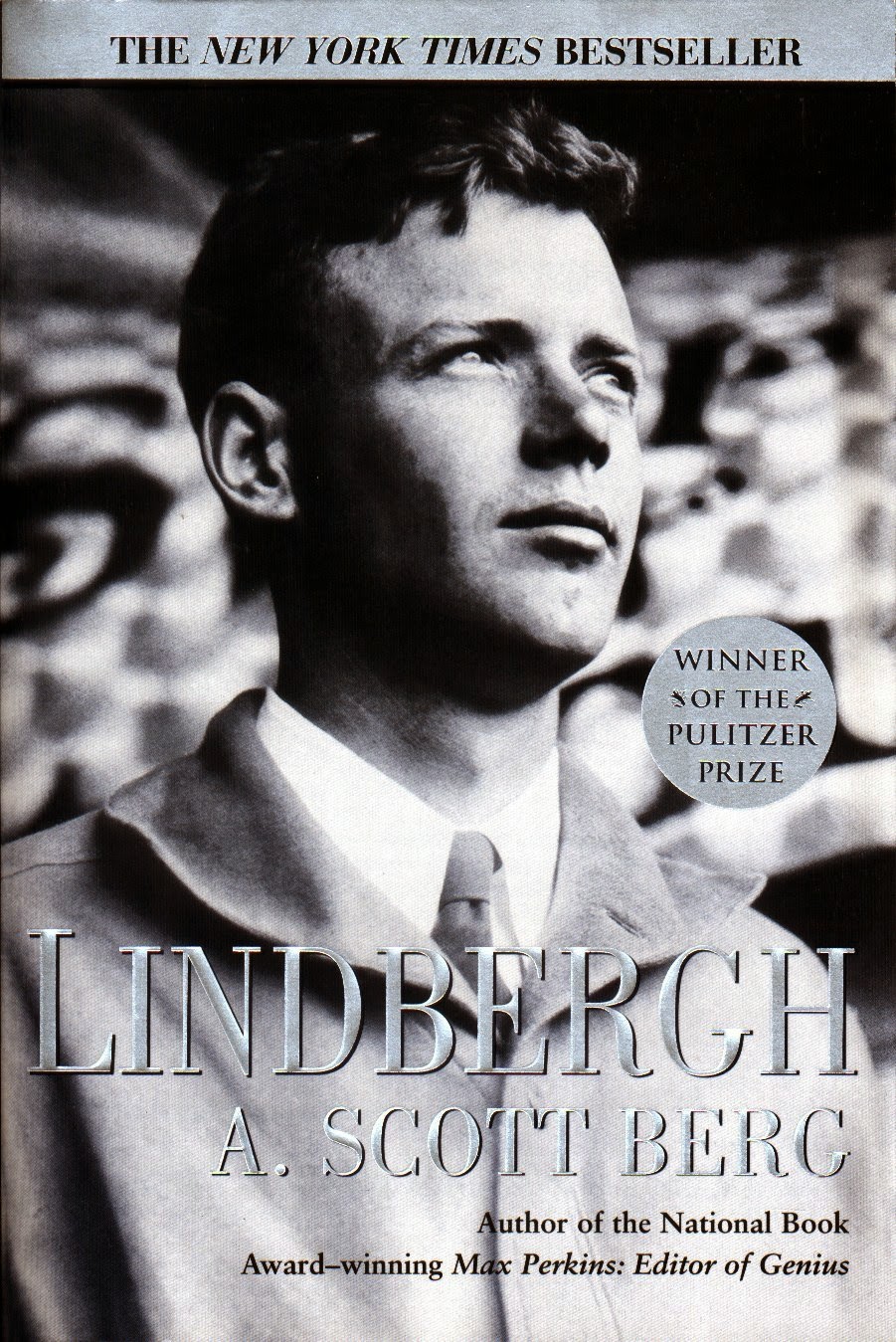 Bill Bryson, author of many bestselling books including A Walk in the Woods, explores one summer, one particularly eventful summer in America's history, in 1927. One Summer: America 1927 is a fun, informative social history that will have you stopping friends and family to relay fascinating factoids and anecdotes.
Bill Bryson, author of many bestselling books including A Walk in the Woods, explores one summer, one particularly eventful summer in America's history, in 1927. One Summer: America 1927 is a fun, informative social history that will have you stopping friends and family to relay fascinating factoids and anecdotes.So what was happening that summer? Well, Charles Lindbergh flew solo across the Atlantic Ocean generating a wave of hero worship the quiet young man was utterly unprepared for and was to have life long consequences. Bryson details not only Lindbergh's flight, but attempts (and successes) of other contemporary aviators. Lindbergh came from a cool, undemonstrative family and was nothing short of shell shocked to receive the adulation that was to flow from the thousands who showed up at every public appearance. This was before he met and married Anne Morrow, before his baby was kidnapped and murdered, and before he fell from grace with his support of Hitler and the Nazi party.
 |
 |
 Speaking of Hitler, the one American mentioned favourably in Mein Kampf was Henry Ford. In the summer of 1927 Ford discontinued his Model T and began to cultivate an obsessive interest in finding industrial uses for agricultural products like soybeans. In 1927 Ford embarked upon a project called Fordlandia, which was a model American community built in the jungles of Brazil with the purpose of producing rubber. It failed, and it failed badly. Ford was also outspoken about his antisemitic beliefs, contributing towards what Bryson described as The Age of Loathing. He described a time when it was easy to hate for very little reason, and this hatred eventually lead to extremists beliefs, like the disturbing eugenics movement.
Speaking of Hitler, the one American mentioned favourably in Mein Kampf was Henry Ford. In the summer of 1927 Ford discontinued his Model T and began to cultivate an obsessive interest in finding industrial uses for agricultural products like soybeans. In 1927 Ford embarked upon a project called Fordlandia, which was a model American community built in the jungles of Brazil with the purpose of producing rubber. It failed, and it failed badly. Ford was also outspoken about his antisemitic beliefs, contributing towards what Bryson described as The Age of Loathing. He described a time when it was easy to hate for very little reason, and this hatred eventually lead to extremists beliefs, like the disturbing eugenics movement.What would the 1920s be without a look at Prohibition, mobsters, and murder? A number of crimes gripped the nation that summer, not the least of which was the murder trial of Ruth Snyder and Judd Gray. Ordinary housewife Ruth Snyder met ordinary corset salesman Judd Gray met, fell in love, conspired to murder, and succeeded to murder Snyder's husband. Their crime was ineptly planned and executed, and in a time when murders went largely unsolved, they were quickly caught. The trial became a tabloid sensation and ultimately they were both found guilty and put to death by the electric chair. Their story became fodder for the novels and movies Double Indemnity and The Postman Always Rings Twice.
 |
 |
 To end on a lighter note, there is baseball. In the summer of 1927 Babe Ruth hit 60 home runs. This record was not broken until 1961 when Roger Maris hit 61. Ruth's early years were tragic, but ultimately put him on the path to success. His mother died young from tuberculosis, leaving his father to run a business and raise the children, most of whom did not survive. Ruth was sent to a reformatory school, that Bryson claimed was quite progressive and kind in its treatment of the students. At St. Mary's Industrial School for Boys everyone was taught a trade (Ruth learned tailoring) and baseball was king. There Ruth met Brother Matthais Boutiler, who hailed from Nova Scotia, who was his first coach and who had a direct and enormous impact on Ruth's future.
To end on a lighter note, there is baseball. In the summer of 1927 Babe Ruth hit 60 home runs. This record was not broken until 1961 when Roger Maris hit 61. Ruth's early years were tragic, but ultimately put him on the path to success. His mother died young from tuberculosis, leaving his father to run a business and raise the children, most of whom did not survive. Ruth was sent to a reformatory school, that Bryson claimed was quite progressive and kind in its treatment of the students. At St. Mary's Industrial School for Boys everyone was taught a trade (Ruth learned tailoring) and baseball was king. There Ruth met Brother Matthais Boutiler, who hailed from Nova Scotia, who was his first coach and who had a direct and enormous impact on Ruth's future.All in all, a fun and informative read. For other social histories that take that moment in time and place in a larger context, you might try:
The Perfect Summer: Dancing in Shadow: England in 1911 by Juliet Nicolson
1968: the year that rocked the world by Mark Kurlansky
Strange Rebels: 1979 and the birth of the 21st century by Christian Caryl
 |
 |
 |







No comments:
Post a Comment